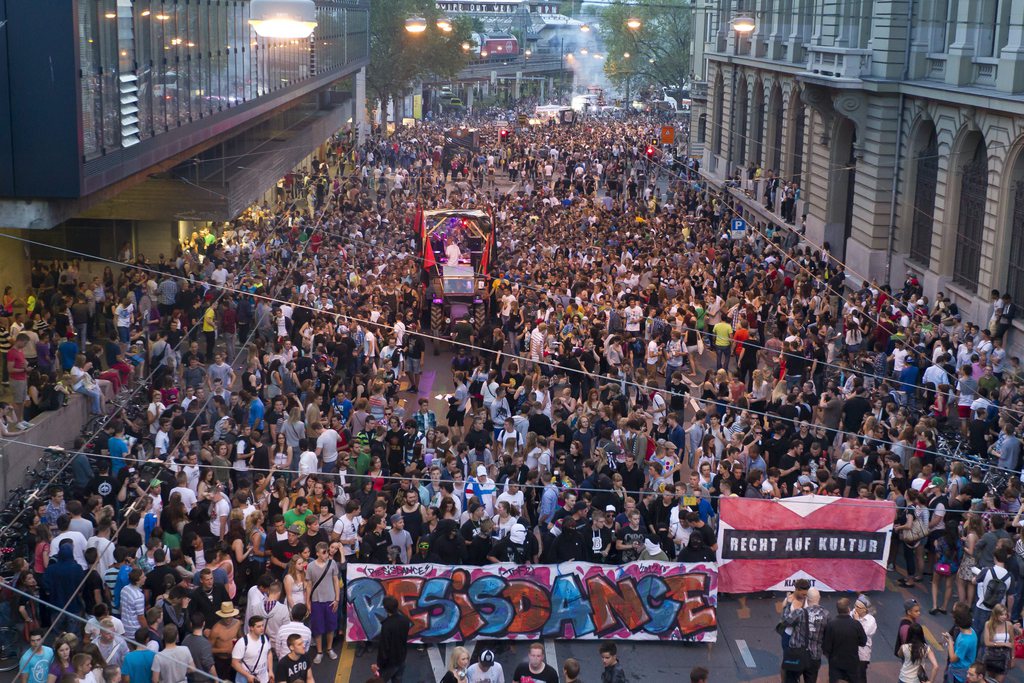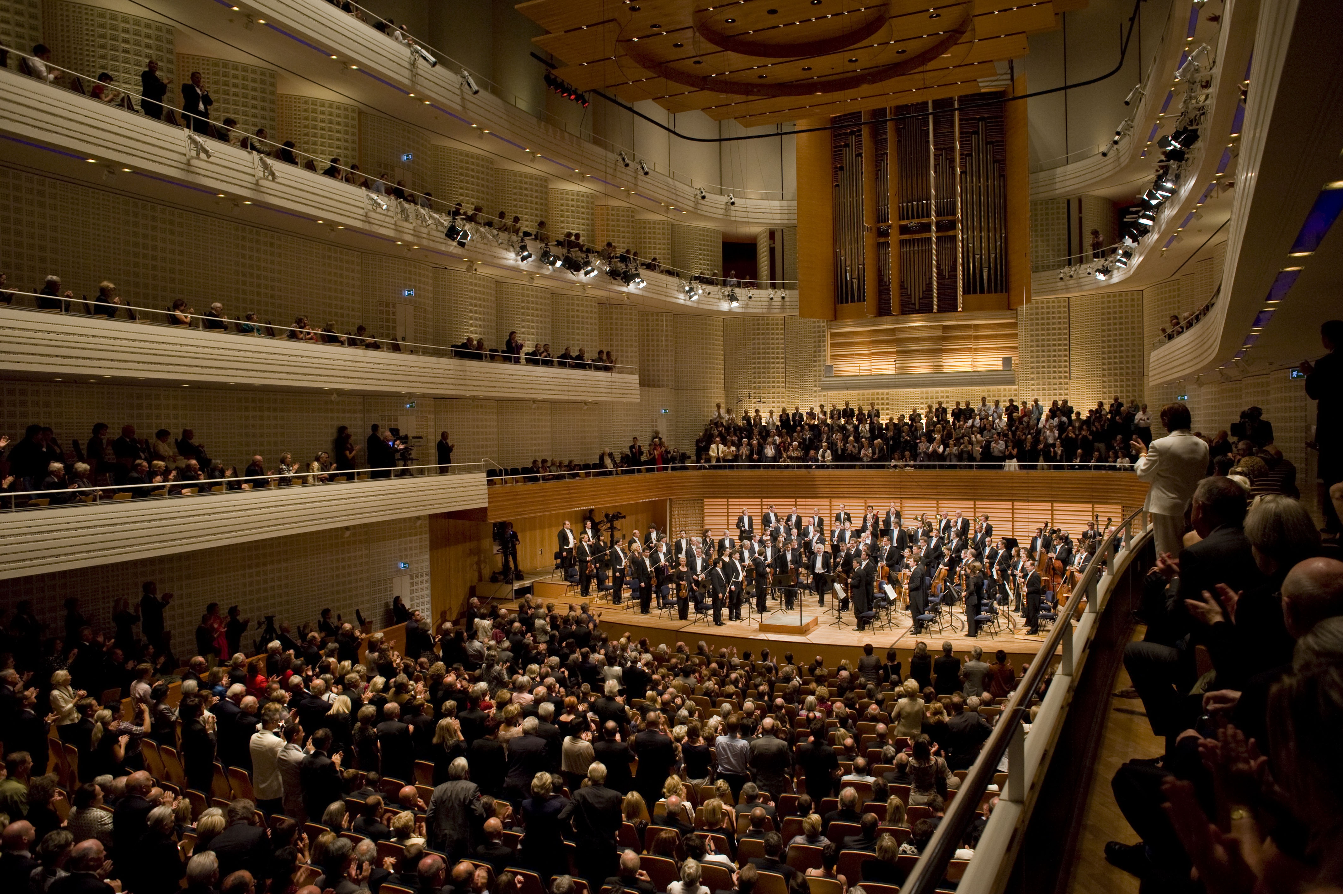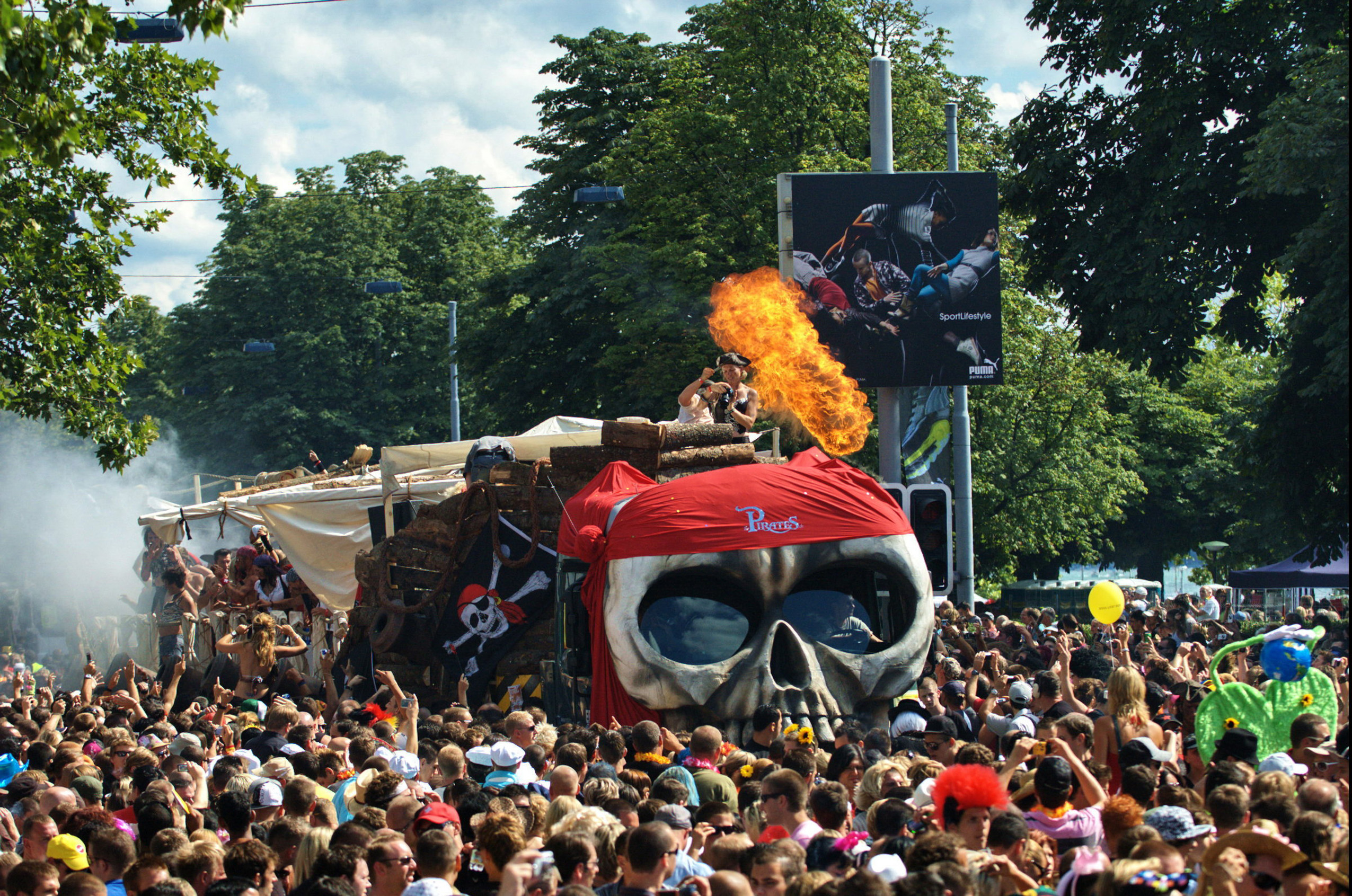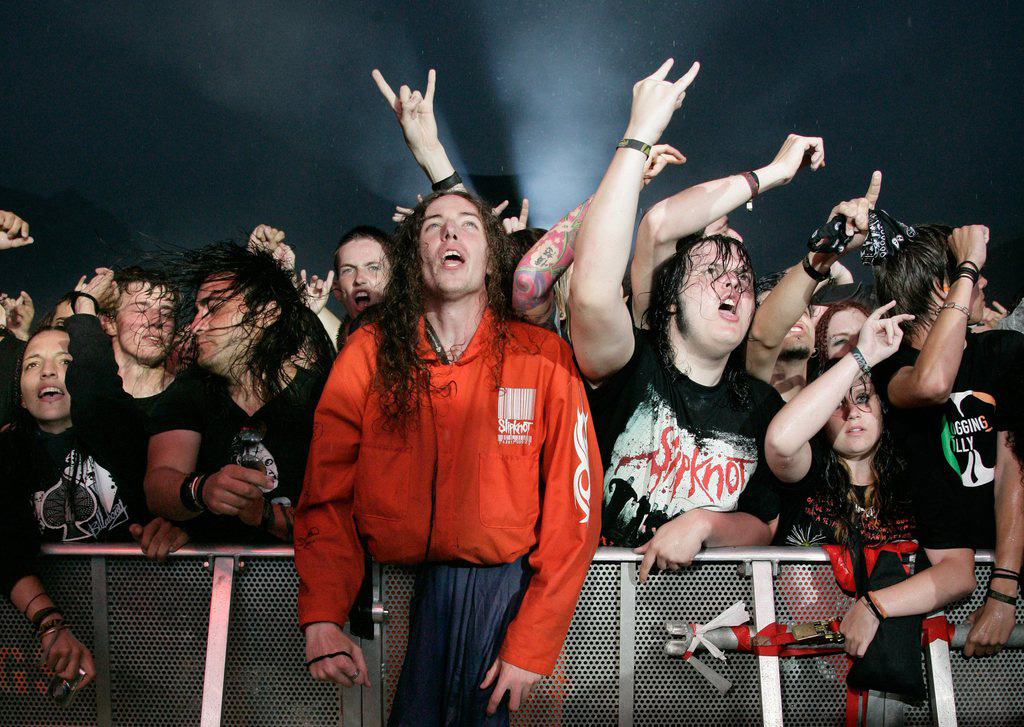Club owners and authorities search for solutions

Over the past decade Lausanne has transformed itself into the nightlife capital of French-speaking Switzerland. But some say the thousands of partygoers who take over the city each weekend have brought new problems.
The heavy, thud-thud-thud bass line reverberates off the walls of the M2 metro and other buildings in the central Place de l’Europe. At the open-air festival in the square, Red Bull and Coke flows and hands reach high into the air as Norwegian DJ Todd Terje warms the crowd with his disco beats.
“We come every year to Electrosanne. There’s always a great line-up. We love coming to Lausanne to party at the weekend,” said Corinne, who travelled with friends from Fribourg.
Close to 40,000 clubbers from the local region, but also from as far away as Zurich and neighbouring France, made the trip for the three-day electronic music festival, which took over the centre of the city and five local clubs. That was 10,000 fewer than in 2011.
Such large numbers of weekend partygoers are not unusual for the city of 130,000 residents. Its 32 clubs, as well as numerous bars and restaurants, are said to regularly attract up to 30,000 people.
“There is an urban legend that says Lausanne has the most clubs per inhabitant after Ibiza,” says Bautista Dahl Rocha, Electrosanne’s organizer, with a laugh.
The city on the shores of Lake Geneva was not always a number one party destination, though. The change can be traced back to a decision by the local authorities in 1995 to lift controls on the number of clubs and liberalise the market. At the same time the urban environment has been transformed, in particular the central Flon district, which has become the club scene hot spot.
Nightlife has become a major selling point for the city’s authorities.
“Lausanne is a beacon of light that blazes in the night sky of Helvetia,” the Lausanne city website proudly claims. “Lausanne’s club culture has breathed life into the city at night.”
Losing shine?
But this reputation risks losing some of its shine. Electrosanne’s organisers said the event went off without any major problems or security incidents. However, over 50 officers were called to break up a fight early on Sunday morning near the Casino de Montbenon. Lausanne nights have been quite tense for some time, according to the police.
On May 13 a fight outside a nightclub degenerated into a pitched battle involving 200 people and 36 police. Officers had to use plastic bullets to restore calm and disperse the hostile crowd. The scale of the incident caused outcry in political circles.
Jacqueline de Quattro, canton Vaud’s police minister, said Lausanne had “reached a breaking point”.
The event has led to much reflection on the causes and solutions.
Take in hand
“Since May things have been more or less alright. There are not riots every night like the one in May; we have to be careful not to exaggerate. But people now realise there is a potential problem that could happen more often and we have to take things into hand,” said Marc Vuilleumier, the Lausanne councillor in charge of public security and sports.
On Sunday he surprised many people by announcing in the Le Matin Dimanche newspaper that he was giving up his post as police chief due to recent criticism of his security policies.
“When so many people come here for the nightlife we have to be tolerant and accept that a small minority behaves badly and causes problems. But the thing is this ‘small minority’ has become a bit too big.”
The Lausanne councillor felt the city had “gone beyond” what it could absorb; he wants a limit on the number of clubs and bars.
Vuilleumier is part of a panel set up by the city authorities to make recommendations at the end of September on how to calm and increase the quality of the nightlife on offer.
Slow degradation
Thierry Wegmüller, boss of D-club, one of Lausanne’s biggest clubs, and president of the association “Pool Lausanne La Nuit”, which represents Lausanne club owners, met with the panel to outline concerns.
His association and those representing bar and shop owners believe there has been a “slow degradation of the city’s image which will have long-term consequences, especially for tourism.”
“Lausanne has developed considerably over recent years, both day and night, but security has not kept pace. What we are seeing now is a consequence of the lack of anticipation,” he commented.
He complained about the lack of police: “Why at the weekend are there only 20 police patrolling the city at night?”
Vuilleumier said there were plans to add 60 more officers to the current contingent, 30 by 2014 and 30 more by 2016.
Drugs and alcohol
Wegmüller felt the number of drug dealers setting up “with total impunity” had increased over the past two years. There are estimates of 200 dealers active on the streets on a weekend night.
Vuilleumier admitted the Penal Procedure Code was “completely unsuitable” for drug dealing cases.
Wegmüller added that alcohol consumption among young people had also changed a great deal over the past five years.
“People drink much more and a lot faster so as to get drunk rather than to have fun. There is a huge hypocrisy over the management of alcohol…you need to ban the sale of alcohol after 7pm,” he said.
During Electrosanne, as on most weekends, numerous groups of young people could be seen openly drinking bottles of vodka, whiskey and other alcohol, which were then left in the streets.
The businesses would like to go further and ban the consumption of alcohol in the streets, while investing more in alcohol prevention programmes for young people.
They are also calling for surveillance cameras in certain parts of the city, the introduction of a nightclub charter to ensure better quality of clubs, and extending closure times to 6am to prevent groups wandering aimlessly around causing trouble before public transport begins.
“In general I feel the whole thing has been exaggerated a bit,” said Electrosanne’s Dahl Rocha. “People go out and some have fun, others less, some can take alcohol and there have always been problems. I don’t think there are now more than in the past.
“It’s a bit strange. There are more clubs but fewer people going out. It’s a bit saturated. I feel club culture is a bit lost here.”
Lausanne, the capital of canton Vaud, is situated on the shores of Lake Geneva in western Switzerland.
The commune of Lausanne has some 130,000 residents, making it Switzerland’s fifth largest city. The entire agglomeration consists of 336,440 inhabitants.
The city is the home to the headquarters of the International Olympic Committee, numerous sports federations and multinationals.
Lausanne has a rich cultural and sporting tradition, hosting some 3,000 cultural events every year.
It holds large annual music festivals such as the Festival de la Cité, the Fete de la Musique, the Transat Festival, Electrosanne and the Label Suisse festival.
The Electrosanne electronic music festival was created in 2006 by the Fayabash association.
The 7th edition (September 6-9) brought together 80 Swiss and international artists to play on two outdoor stages in the centre of Lausanne and at five partner clubs (Mad, D! Club, Loft Club, Le Romandie, and La Ruche). These included Ame, Dixon, Todd Terje, Claude Vonstroke, Julio Bashmore, Mad Professor, Benji B and the Buraka Som Sistema.
Since the 2011 edition, the festival also proposes exhibitions, artistic performances, conferences, workshops and even musical brunches. The highlight this year is the CArTe: The Centre of Art and technologies, which aims to explore relations between electronic cultures, fine arts and new technologies.

In compliance with the JTI standards
More: SWI swissinfo.ch certified by the Journalism Trust Initiative





You can find an overview of ongoing debates with our journalists here . Please join us!
If you want to start a conversation about a topic raised in this article or want to report factual errors, email us at english@swissinfo.ch.